Biochemistry
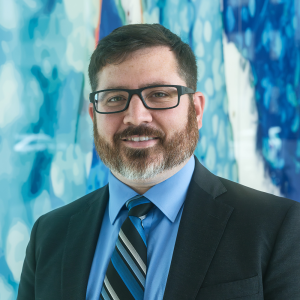
Aug. 13, 2024
Curtis A. Nutter
Co/post-transcriptional regulation of gene expression by alternative RNA processing is a highly regulated and complex process that exponentially increases the repertoire and dynamic control of gene products. Disrupted RNA processing is implicated in many human diseases, in particular neurological disorders. Alternative RNA processing is regulated by developmental and tissue specific RNA binding proteins (RBPs) which influence core RNA processing machinery. My group will study these regulatory interactions involved in co/post-transcriptional control of neurological development and cell membrane transport/secretion. We will characterize these mechanisms using cutting edge RNA sequencing technology, single-molecule RNA detection, mass-spectroscopy, and CRISPR techniques to address our hypotheses…
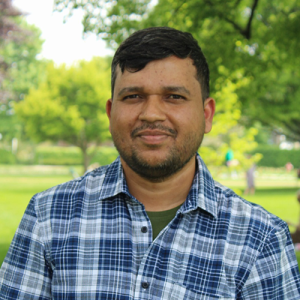
Aug. 13, 2024
Prashant D. Sonawane
Plants synthesize a huge repertoire of diverse, lineage-specific Specialized (secondary) metabolites (also known as Natural Products). Although plant specialized metabolites play a central role in defense and stress responses, many of these compounds are also indispensable resources for human nutrition and medicine. In plants, all known specialized metabolites are derived from core/primary metabolites, which are vital for eukaryotic life. Plant derived specialized molecules/natural products have become an integral part of human health (steroid hormones; e.g. progesterone, estrogen), nutrition (e.g. vitamin D supplements, dietary supplements such as Tribulus extracts) and medicine [drugs for treatments ranging from mild inflammation, allergies to chronic…
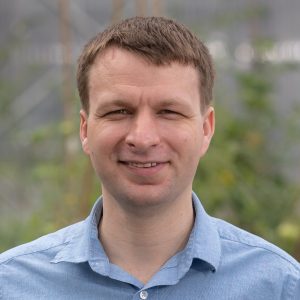
July 31, 2024
Joseph H. Lynch
Dr. Lynch grew up in rural Washington State and received his BS in Biology from Gonzaga University. He then earned his PhD from Washington State University in the Molecular Plant Sciences program, with his graduate research in the lab of Dr. Sanja Roje focusing on the metabolism of flavin cofactors. After completion of his degree, he took a postdoctoral position in Dr. Natalia Dudareva’s lab at Purdue University studying the production and release of phenylpropanoid/benzenoid volatiles in plants. During his postdoc, he helped elucidate a cytosolic pathway for synthesis of the amino acid phenylalanine in plants that operates in parallel…

July 31, 2024
Emily Althoff
Althoff holds a split appointment between MU and Lincoln University. Here, she hopes to research local concerns in pest management and conservation working with local, state, and federal partners. Results from her research are incorporated into her extension programming. Requesting Insect Identification from the Althoff Lab: Photos: Submit clear, well-lit photos of the insect (top, bottom, head, abdomen, legs) and any damage it caused. Include its location. Briefly describe where you found the insect and any issues it’s causing. Email: Send everything to emilyalthoff@missouri.edu. We look forward to working with you to solve Missouri insect mysteries! Educational background Ph.D.

Feb. 13, 2023
Stephanie Gates
Protein Quality Control (PQC) pathways include molecular chaperones that regulate protein folding and the substrate degradation by the Ubiquitin Proteasome System (UPS). In cancer, uncontrolled protein expression increases cellular dependence on PQC pathways, which protect, refold, or degrade misfolded proteins to promote cancer tumorigenesis. Conversely, a hallmark of neurodegeneration is the failure of PQC pathways to clear toxic proteins, including α-synuclein (Parkinson’s disease), Aβ and tau (Alzheimer’s disease). PQC pathways have a significant impact on human health, however fundamental aspects of these pathways are still not understood. My research group uses structural (cryo-EM), biophysical (smFRET), and biochemical approaches to determine…

Feb. 13, 2023
Adam Yokom
We are interested in discovering and understanding how protein and protein complexes regulate cellular organelles particularly in the conserved cellular pathway, Autophagy. Autophagy is a complex cascade of proteins interactions which promote the formation of a new double lipid bilayer autophagosome to encapsulate and break down cellular debris. This pathway influences development, cellular health, and protects cells against invading pathogens. Additionally, the autophagy pathway is implicated in numerous human diseases including neurodegenerative disease which are a emphasis within the group. Our main goal is to use a combination of biochemical, biophysical and cell biological tools to identify new therapeutic avenues…
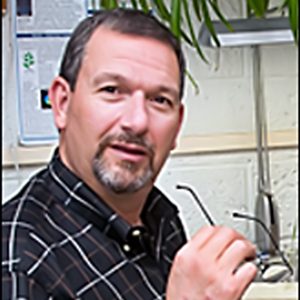
Feb. 8, 2023
Richard Ferrieri
Rich Ferrieri earned his PhD degree in Nuclear & Radiochemistry from Texas A&M University in 1979, and then became a postdoctoral fellow under Alfred Wolf at Brookhaven National Laboratory (BNL). He was later hired onto the scientific staff at BNL working on the medical applications of Positron Emission Tomography (PET) for animal and human research. In 2002, he shifted his interest away from medical research, and into plant biology leveraging many of the same imaging and radiochemistry tools to study basic plant functions. He is credited with developing the first radiolabeled PET plant hormone (11C-jasmonic acid) to study its transport…

Feb. 7, 2023
Richard Dixon
Educational background DPhil, Botany, University of Oxford, UK MA, Biochemistry, University of Oxford, UK…
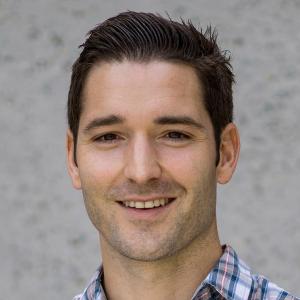
July 18, 2022
Zachary Berndsen
The Berndsen Lab focuses on utilizing and developing state-of-the-art cryo-electron microscopy (cryo-EM) techniques in combination with other biochemical, molecular, and computational tools to interrogate the structure and function of important biomolecular systems within the context of human disease. Our aim is to create bridges between basic and translational science with the goal of making discoveries that will both strengthen our fundamental understanding of these systems and accelerate the development of potentially life-saving therapies. To do so, we will not only rely on internal expertise but engage in extensive collaboration with other research laboratories both on the Mizzou campus and…
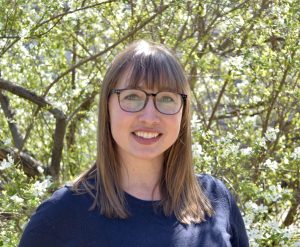
Dec. 20, 2021
Clarissa Durie
Cells must interface with and adapt to the outside world, and one critical way they achieve this is through the dynamic and specific action of secretion systems that transport molecules in and out of cells. Over the last several decades, scientists have identified numerous cellular secretion systems from bacteria to human. However, there are still many unanswered questions about precisely how and when they function. The goal of my research program is to integrate biochemical, biophysical, and genetic approaches to understand the structure, regulation, and function of bacterial secretion systems in their physiological contexts. Bacterial pathogens represent a significant threat…